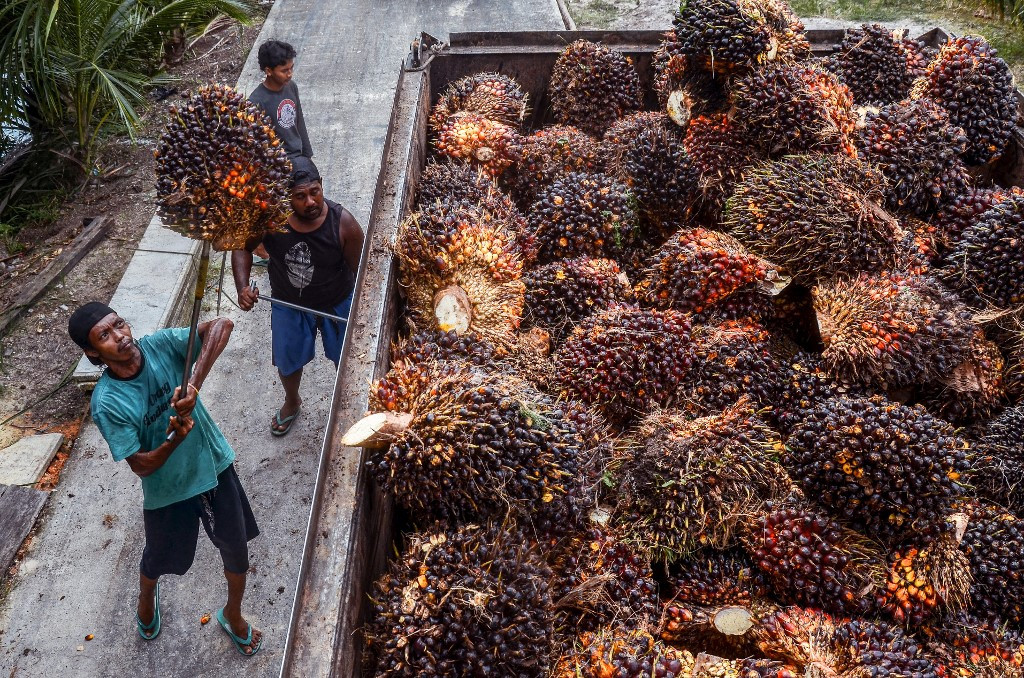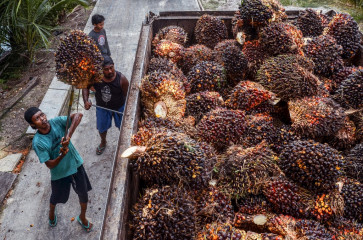Popular Reads
Top Results
Can't find what you're looking for?
View all search resultsPopular Reads
Top Results
Can't find what you're looking for?
View all search resultsPalm oil export ban will hurt us, farmers say
Change text size
Gift Premium Articles
to Anyone
I
ndonesian farmers fear the government-imposed ban on palm oil exports will see fresh fruit bunch (TBS) prices free fall amid an expected domestic supply glut.
Henry Saragih, chairman of the Indonesian Farmers Union (SPI), said some regions had seen TBS prices drop 30 percent to 50 percent since the crude palm oil (CPO) export ban was announced last Friday.
He cited figures reported by palm oil farmers in Riau and North Sumatra that TBS prices in those areas had declined to between Rp 1,700 (12 US cents) and Rp 2,000 per kilogram.
With the ban yet to take effect, Henry expects excess supply to cause TBS prices in the country to decline further.
According to 2021 data, only 16.29 million tons out of a total 46.89 million tons of CPO produced in the country were absorbed by domestic buyers, whereas almost twice as much, namely some 30 million tons, was shipped abroad.
Aside from cooking oil, palm oil is used in a wide range of products, such as other foods, cosmetics and cleaning products, as well as in the production of biofuels.
A current worldwide shortage of alternative cooking oil ingredients has driven up the price of cooking oil and of CPO in particular, but farmers in Indonesia, the world’s foremost CPO producer and exporter, will fail to reap the benefits of high global demand once the export ban kicks in.


















